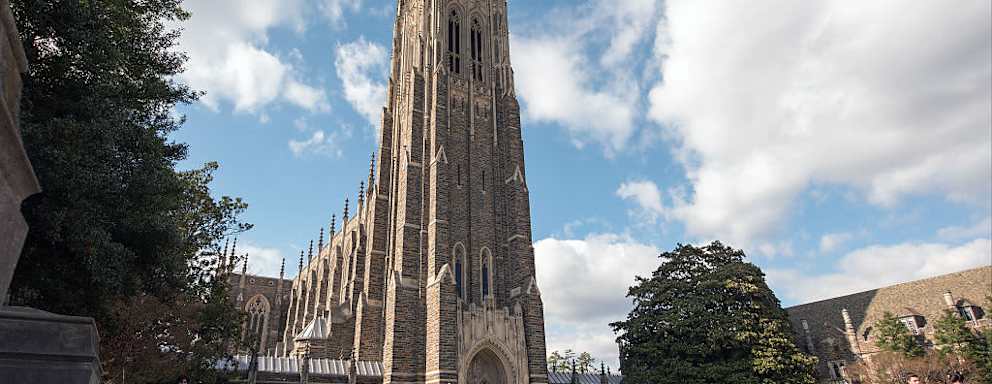Students for Fair Admissions Threatens Princeton, Yale, Duke With Legal Action
 Credit: Lance King / Getty Images
Credit: Lance King / Getty Images- Students for Fair Admissions sent letters to Yale, Princeton, and Duke demanding they explain why the percentages of Asian American students in their incoming classes declined.
- Several other elite institutions have reported increases in Asian American students and drops in underrepresented minority enrollments.
- SFFA contends these three universities aren’t abiding by the Supreme Court’s ban on race-conscious admissions.
- Since the court’s decision, universities have ramped up recruitment efforts and increased financial aid for low-income students.
Over the past several weeks, a number of elite colleges and universities have released enrollment figures for fall 2024, noting a decrease in racial diversity among students in the class of 2028.
First among them was the Massachusetts Institute of Technology (MIT), where the percentage of underrepresented minority students dropped to 16% from a previous three-year average of 29%.
Following MIT was a slew of schools reporting similar drops in diversity among first-year students.
A few notable exceptions stood out.
At Yale University, the percentage of Black and Latino/a enrollments remained stable, while the number of Asian American students declined from 30% to 24%.
Similarly, at Princeton University, while Asian American enrollments dropped from about 26% to 24%, figures for Black and Latino/a students mirrored those from the previous year.
And at Duke University, Black enrollments for the class of 2028 remained constant at 13%, while the university reported an increase from 13% to 14% among Latino/a students and a decrease in Asian American representation by 6 percentage points.
By comparison, Harvard University, MIT, and Columbia University reported increases in Asian American enrollments.
Perhaps unsurprisingly, these outliers caught the attention of Students for Fair Admissions (SFFA), the plaintiff in the 2023 landmark Supreme Court case resulting in a ban on race-conscious admissions. The group had already promised to carefully monitor how universities implement the court’s decision.
Now SFFA is threatening Yale, Princeton, and Duke with legal action. In letters to these three institutions, Edward Blum, the organization’s president, writes that SFFA is “deeply concerned” that the university isn’t complying with the court’s ruling.
“You told the Supreme Court that, without explicit racial preferences, it would be impossible to ‘obtain the diverse student body’ that you obtained in the past,” the letter continues. … “And based on SFFA’s extensive experience, your racial numbers are not possible under true race neutrality.”
The letter asks each university to explain its enrollment results, warning that without this information, “SFFA will conclude that you are circumventing the Supreme Court’s decision.”
“SFFA is prepared to enforce [the SCOTUS ruling] against you through litigation,” the letters conclude. “You are now on notice. Preserve all potentially relevant documents and communications.”
Jayson Weingarten, a college admissions consultant with Ivy Coach and a former admissions officer at the University of Pennsylvania, had read the tea leaves before these letters were issued.
“Are these groups looking for ways to go after schools to advance their agendas? Of course,” Weingarten previously told BestColleges, “and Yale could become that next hot potato. If you’re an admissions officer and you’re seeing everyone else experiencing some sort of decline and you’re not, then it becomes incumbent on you to have general counsel come up with a good defense for why.”
As The New York Times points out, more students are opting not to identify their race on the application forms. At Princeton, the number of students declining to self-identify increased from 1.8% last year to 7.7%. this year. At Duke, those figures were 5% and 11%, respectively.
Yet race and ethnicity data are not readily available to college admissions offices, at least on applications submitted through the Common Application. Colleges can determine the racial mix after the class has enrolled, Weingarten explained, a task often accomplished through surveys to complement the application data.
The complicating factor, however, is the college essay. Instead of seeing a racial “checkbox,” admissions offices are reading essays addressing students’ racial identities.
In the court’s 6-3 decision, Chief Justice John Roberts wrote that “nothing prohibits universities from considering an applicant’s discussion of how race affected the applicant’s life, so long as that discussion is concretely tied to a quality of character or unique ability that the particular applicant can contribute to the university.”
A later clarification, however, rendered this loophole somewhat confusing. Roberts insisted that “universities may not simply establish through application essays or other means the regime we hold unlawful today.”
The SFFA letters stress this point, warning that the universities cannot circumvent the ruling by using essays to “recreate the same regime.”
Even if SFFA is successful in its bid to acquire admissions information from these institutions, it might not find a smoking gun.
Universities have ramped up their outreach efforts within low-income communities and are leveraging financial aid to reduce barriers for underrepresented students. The applicant pools might thus reflect an uptick in applications from these populations, which could help explain the corresponding enrollment numbers.
What’s more, one year doesn’t constitute a trend. Racial percentages do vary somewhat from year to year. Underrepresented minority enrollments might decrease next year at Princeton, Yale, and Duke while rising at Harvard and MIT. Asian American enrollments might also fluctuate.
Several years of data will provide a clearer picture of what’s happening in this post-affirmative action climate.
Meanwhile, SFFA and other watchdog groups will keep a close eye on other selective institutions, no doubt combing through Common Data Set and Integrated Postsecondary Education Data System (IPEDS) reports of institutions that neglected to make public pronouncements about their entering class.